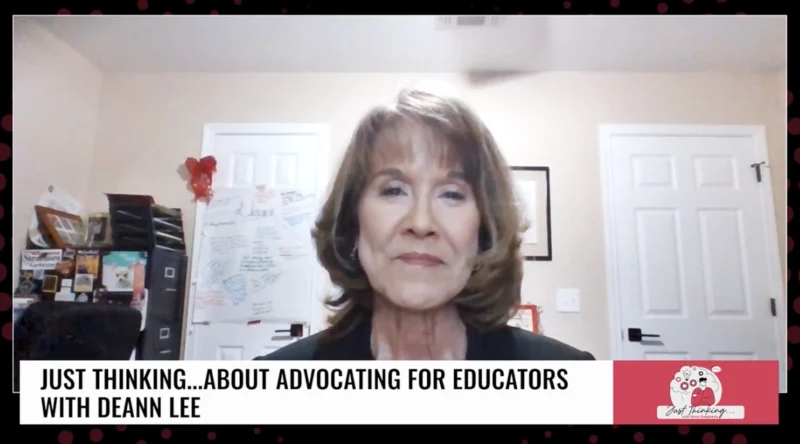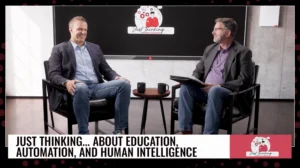Giving Teachers the Confidence and Strategies to Shift Online
Celebrating the leaders and experts that are powering education into the future, host JW Marshall sets out to ask the “right questions” in EdTech to understand the changes in policy and technology that will power our universities, tradeschools, and companies – and drive growth in upskilling certifications.
Most teachers had little experience with online teaching when the pandemic began. In just a few days, they were expected to translate the classroom to the internet. Voices of eLearning is always seeking to provide teachers tips and insights on how to transition successfully. Today, JW Marshall has an expert to share her knowledge, Courtney Ostaff. Ostaff literally wrote the book on the subject, as she’s the author of The Teaching Online Handbook.
The discussion began with an origin story and Ostaff’s first online teaching role. She was a grad student, not planning to become an educator when her program head received a grant to teach computers online. “My first experience was reading a book online, and I was terrible. But nobody knew anything about teaching online 20 years ago,” she said.
Her skillsets and expertise grew over the years, and when the pandemic hit, a friend told her she should “write a book,” and she did.
“Some thought they’d just turn the camera on and do what they did in the classroom, and it’s not effective,” Ostaff commented.
In discussing the book, Ostaff mentioned she structured it like she does her classes. She also said, “It’s not as much as what you do in that Zoom session as what happens offline.”
To make offline and online work, she uses content modules, which are digital folders, and there’s one for every week for every class for students.
When asked about the best use of live time, she responded, “Answer student questions and present new material in a way they can grasp it and do their assignments.”
The biggest challenge she and most teachers face is keeping student’s attention. “They can tune you out, and there’s not much you can do about it. I try to create an expectation that it’s going to be a positive experience and keep pinging them to keep their attention every few minutes,” she said.
Having a set structure to class is essential for Ostaff so that it becomes a habit. She also talked about relationships with parents and the importance of it. “Assume that parents will see your lessons. Learn to be respectful of family time, which is why I don’t have weekend homework, and trust them.”










